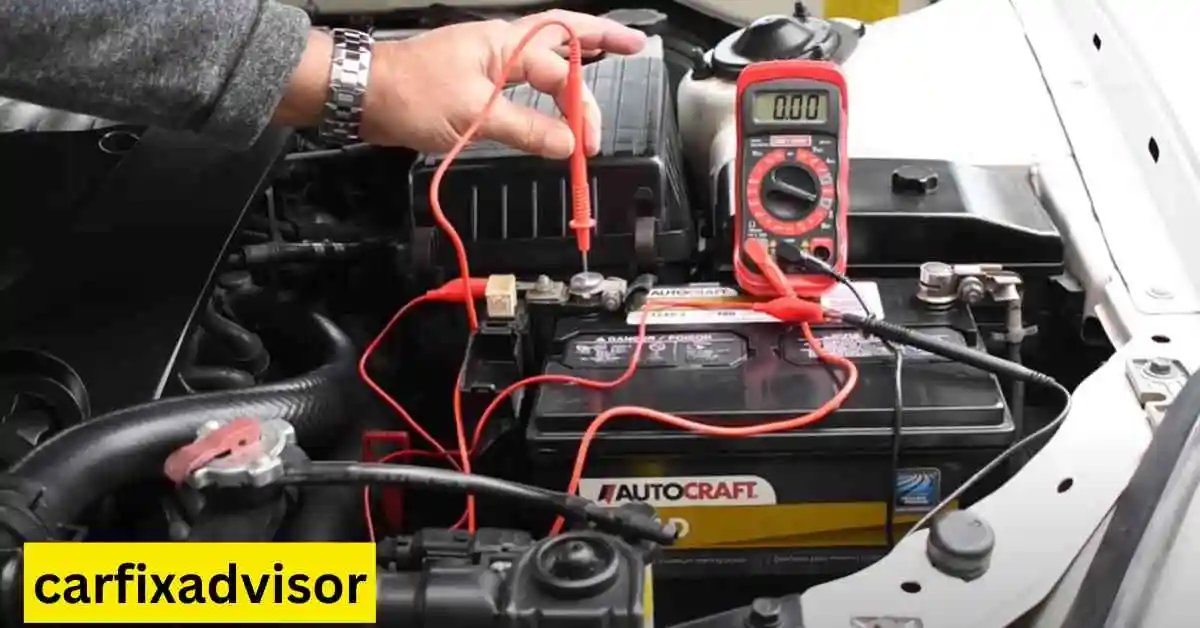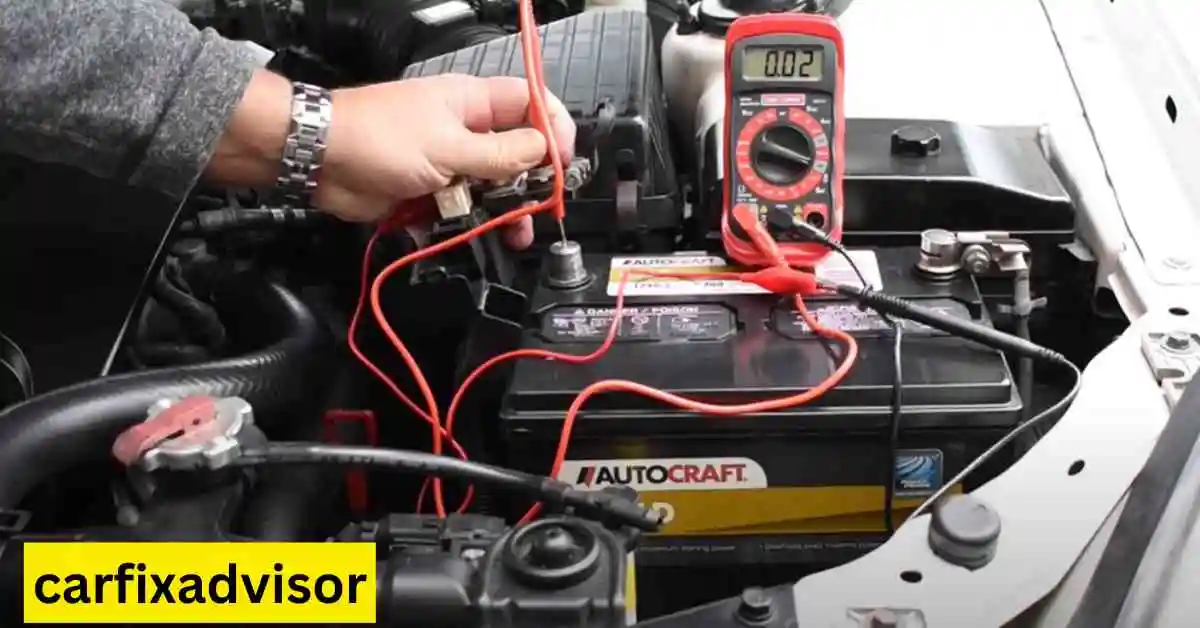Have you ever returned to your car after just a few days and found the battery completely drained? If this sounds familiar, you’re not alone. It can be frustrating to discover that your car battery dies if not driven for 3 days or more, especially when it feels like you’ve only been gone for a short time. But why does this happen, and what can you do about it? In this article, we’ll dive into the reasons why your car battery die so quickly, the potential causes, and the steps you can take to avoid the hassle of a car battery die.
Whether it’s a busy lifestyle or a short vacation that keeps you away from your car, knowing how to prevent a car battery die battery is essential. So, let’s explore the issue together and find solutions that will save you time, money, and frustration in the future.
What Causes a Car Battery Die If Not Driven for 3 Days?
A car battery is designed to stay charged while you’re driving, with the alternator helping to maintain that charge. However, if you leave your car sitting for a few days without driving it, the battery can slowly lose its charge. The reason this happens lies in the way a car’s electrical system operates, even when the car is off. Let’s break it down:
1. Parasitic Drain
Every car has a certain amount of electrical devices that continue to draw power, even when the vehicle is turned off. This is known as parasitic drain. Components like the clock, radio presets, security system, and even some sensors continue to draw a small amount of power from the battery while the car is parked. While the drain is usually minimal, over time, it can add up—especially if the car is left unused for a few days.
In my own experience, I noticed that after leaving my car parked for about three days without starting it, the battery would drain completely. I didn’t realize how many small systems were still running behind the scenes until I did some research. Turns out, this parasitic drain was the culprit.
2. Battery Age and Condition
Another important factor is the age and overall health of your car battery. As batteries age, their ability to hold a charge diminishes. A healthy battery may be able to last a few weeks without any issues, but if your battery is older or showing signs of wear, it may not hold a charge as effectively. If your car battery is already near the end of its lifespan, it could easily die after just a few days of non-use.
I had a similar issue when my battery was around four years old. It was still functional, but after a couple of days without driving, it wouldn’t start. After replacing the battery, I noticed a huge improvement in its ability to hold a charge.
3. Cold Weather
Cold temperatures can also be a major factor in why a car battery die quickly when the car isn’t driven. In colder climates, the chemical reactions inside a battery slow down, which can reduce its ability to hold a charge. If the car is left sitting for a few days in freezing conditions, the battery is more likely to lose power. This is especially true for older batteries or those that are already struggling to hold a charge.
During winter months, I noticed that my battery would die more quickly when I didn’t drive my car for a few days. A quick trip to the mechanic confirmed that the cold weather had a significant impact on my battery’s performance.
4. Faulty Charging System
Sometimes, the issue isn’t the battery itself, but the car’s charging system. If your alternator is failing or not charging the battery properly while you’re driving, the battery may never reach full charge. This can lead to it slowly losing power, even when the car is parked. A faulty alternator can also cause parasitic drain, making the situation worse.
After a trip to the shop, I learned that a small issue with my alternator was causing my battery to drain even faster. Once I got the alternator replaced, the battery held up much better during periods of non-use.
Solutions I’ve Tried to Prevent My Car Battery from Dying After Not Driving for 3 Days
After dealing with my own battery issues, I decided to take some steps to prevent this from happening again. I’ve tried a few different methods, and here are the solutions that worked best for me:
1. Use a Battery Maintainer (Trickle Charger)
One of the most effective solutions I found was using a battery maintainer, also known as a trickle charger. These devices are designed to keep the battery at an optimal charge without overcharging it. I simply plug it into my car when I know I won’t be driving for a few days, and it keeps the battery topped up without any hassle. It’s especially helpful if I plan to leave my car parked for longer than usual, like over the weekend or during a vacation.
2. Disconnect the Battery
If I’m leaving my car for an extended period, I’ve found that disconnecting the battery can prevent parasitic drain altogether. By removing the negative terminal, I ensure that nothing is drawing power from the battery while I’m away. This is a more manual solution but can be effective for long periods of non-use. It’s a bit inconvenient, but if I know I won’t be using my car for a while, it’s a reliable option.
3. Regularly Start the Car
Another simple solution is to start the car every few days, even if I’m not planning on driving it. I’ve learned that by simply turning the engine on for 10-15 minutes, I can help recharge the battery. This also gives the alternator a chance to do its job and recharge the battery. While this isn’t a perfect solution, it does help prevent the battery from completely draining during short periods of non-use.
4. Replace the Battery
If your battery is old and no longer holds a charge well, replacing it may be the best option. I replaced my own battery a couple of years ago after realizing that it wasn’t performing as it should. Since then, I’ve noticed fewer issues with my car battery dying after being parked for just a few days. A new, high-quality battery can help keep your car running smoothly, even during extended periods of non-use.
FAQs About Car Battery Die If Not Driven for 3 Days
Why Does My Car Battery Die If I Don’t Drive It for a Few Days?
Your car battery might die after a few days of inactivity because even when the car isn’t running, there are still small electrical components drawing power, like the clock, alarm system, and sensors. Over time, if the battery isn’t being recharged by the alternator, these small drains can add up, causing the battery to die.
Why Is My Battery Dead After 3 Days?
A battery that dies after just three days of inactivity could indicate it’s nearing the end of its lifespan or there’s an electrical issue. As batteries age, they hold less charge and may drain faster. Alternatively, a component might be using more power than it should, such as a faulty light or security system.
How Long Can a Car Battery Last Without Driving?
Generally, a car battery can last around two weeks without driving. However, after this time, the battery may begin to lose its charge. If you’re not using the car for an extended period, consider disconnecting the battery or using a trickle charger to keep it from draining.
How Can I Find Out What Is Draining My Car Battery?
If your battery keeps draining, the first step is to check for obvious issues like lights or accessories left on. Next, a mechanic can perform a “parasitic draw” test to check for electrical components that are using more power than they should. This test will help pinpoint the culprit draining your battery.
How Long Can a Car Sit Before the Battery Dies?
Typically, a car can sit for about 2-3 weeks before the battery starts to die. After that, the charge starts to deplete, especially if the car is older or the battery is worn out. If you’re not using your car for a long period, it’s a good idea to disconnect the battery or use a battery tender.
How Do I Tell If My Alternator Is Bad?
A bad alternator often shows signs like dimming headlights, electrical issues, or the “battery” warning light turning on. If the alternator isn’t charging the battery while you drive, the battery will eventually die. You can also test the voltage with a multimeter—if it’s lower than 13 volts when the car is running, it could be the alternator.


